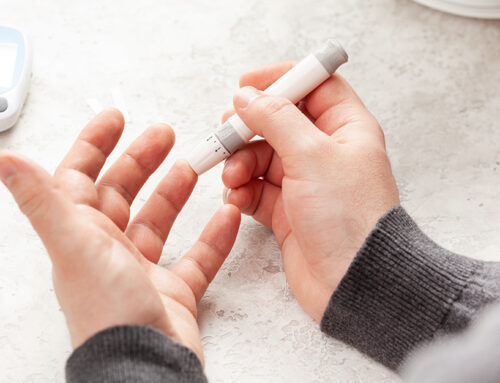If you’ve spent any amount of time reading this blog, taking a tour of the site, or reading Thyroid and Menopause Madness then you know that my personal motto is, “Testing, Not Guessing!”
Before we can even begin to treat symptoms, we need information about what is going on below the surface. Every body is different. Susan and Caroline both feel utterly fatigued each day and are suffering from serious brain fog, but it could turn out that Susan has Hashimoto’s, while Caroline is suffering from leaky gut and a low-grade virus. Only detailed testing will help us get to the bottom of your specific condition and guide us in crafting a plan to address it.
Unfortunately, when it comes to hypothyroidism, traditional doctors don’t always do all the testing necessary to give them the information they truly need to understand your condition. If you go to your doctor complaining about symptoms of hypothyroidism, she is likely to simply order a blood test to test your level of thyroid stimulating hormone (TSH). This is a start, but this test won’t give your doctor nearly enough information.
Understanding the Thyroid Tests You Need
I encourage all the people with symptoms of hypothyroidism to get a full thyroid panel done. This includes tests for:
- Total T-4 (Thyroxine)
- T-3 Update
- Free-Thyroxine Index (FTI) T-7
- TSH
- TBG (Thryoid=Binding Blobulin)
- TPO Antibodies
- TGB Antibodies
- FT3
- RT3
I know this looks like just a bunch of mumbo-jumbo to you, but the results of this thorough thyroid panel can give me keen insight into your condition. The level of thyroid stimulating hormone (TSH) in your blood can tell me how well your thyroid is working, but that’s just a start. Your thyroid releases two major hormones, T-3 and T-4. It’s important to measure the levels of both of these hormones in your blood to ensure the level of each hormone is well-balanced. A simple TSH test doesn’t do this.
Additionally, the number one cause of hypothyroidism is an autoimmune disorder called Hashimoto’s Disease. By measuring TPO and TGB antibodies in your blood, I can determine if your immune system is sending lots of antibodies to attack your thyroid, the primary calling card of Hashimoto’s.
Each of these tests gives me a little more information about my patient’s condition, which allows me to tailor treatment specifically for her. If she has Hashimoto’s, for example, I would strongly suggest she immediately switch to a gluten-free diet. If I don’t see high levels of those antibodies in her blood, then I know I need to look somewhere else for the cause of her hypothyroid symptoms.
Is Your Doctor Doing Enough?
A doctor who merely orders a TSH test will receive none of this crucial information. They will be able to tell you if your thyroid is over-performing (hyperthyroidism) or underperforming (hypothyroidism), but not why. That WHY is the key to treatment. A doctor may prescribe you synthetic thyroid hormone to address your symptoms, but synthetic hormones won’t fix the cause of your hypothyroidism. If you have Hashimoto’s, then your condition will get worse and worse, and you’ll find yourself in your doctor’s office over and over again asking for higher dosages of synthetic hormones to continue masking the symptoms.
Don’t just cover up your symptoms!
Figure out the truth through testing, not guessing. The next time you visit your doctor, request a full thyroid panel. If you doctor won’t agree to perform these tests, or if you don’t want to deal with arranging tests through your doctor and your insurance, there are plenty of third-party labs that will perform a full thyroid panel for you. If you need any assistance in accessing or interpreting your report or guidance on creating an action plan based on your results, please contact me to schedule a consultation.





